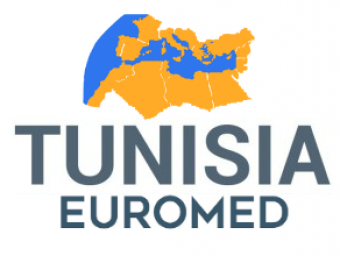He said the overwhelming international response aimed at helping Ukrainians should establish a precedent and likewise be applied when the world is “witnessing the brutality” against Syrians, Palestinians, Libyans, Iraqis or Afghans. He added that he hopes it is “a wake-up call for everyone in the international community to look at our region” and address the issues “with the same level of commitment” seen in Ukraine.
The Qatari official’s comments mirror a sentiment that has spread across the region in the aftermath of Russia’s invasion of Ukraine. People in crisis-ridden countries such as Syria, Afghanistan and Iraq have been angered by some media coverage painting the Ukrainian conflict as wholly different from the bloodshed experienced in their own countries. Many are also frustrated by the international community’s response, comparing it with the relatively lukewarm reaction to a number of crises over the years in their region.
Rage erupted after a foreign correspondent for CBS News said Ukraine was not used to witnessing war “like Iraq or Afghanistan,” calling the country a “relatively civilized, relatively European” place. The correspondent later apologized, but similar comparisons were made in other media.
A former deputy prosecutor general of Ukraine told the BBC that the situation was emotional “because I see European people with blue eyes and blond hair … being killed every day.”
A journalist on French TV said: “We’re not talking here about Syrians fleeing the bombing of the Syrian regime backed by [Russian President Vladimir Putin]. We’re talking about Europeans leaving in cars that look like ours to save their lives.”
Comments like these, as well as the West’s large-scale reception of Ukrainians fleeing the war, have launched a conversation in the Middle East about what some see as tiers of refugees and wars treated unequally. In a unanimous vote, the European Union adopted a plan to give Ukrainian refugees full access to the bloc for three years. The United States pledged to take in 100,000 refugees from Ukraine; for comparison, since Syria’s 11-year war began, the country has taken in fewer than Syrian 30,000 refugees.
On various Arab social media platforms, a tweet by a Nigerian author and human rights lawyer has been shared tens of thousands of times.
“Can’t get it out of my head that Europe cried about a ‘migrant crisis’ in 2015 against 1.4m refugees fleeing war in Syria and yet quickly absorbed some 2m Ukrainians within days, complete with flags and piano music,” Ayo Sogunro wrote. “Europe never had a migrant crisis. It has a racism crisis.”
At the Doha Forum, Tamim bin Hamad al-Thani, the emir of Qatar, said his nation stands “with the millions of innocent and refugees” from Ukraine. But he added that he wanted “to remind” the international community of Palestinians, Syrians and Afghans who have similarly suffered and whom he said the international community has failed to do justice.
Ukrainian President Volodymyr Zelensky made a surprise video appearance at the forum, in which he compared Russia’s destruction of the port city of Mariupol to the Russian-backed destruction of Aleppo, Syria, which in 2016 saw entire neighborhoods leveled. The city remains largely destroyed.
Saudi Foreign Minister Faisal bin Farhan al-Saud later addressed the comparison that “Mariupol is Europe’s Aleppo” during a roundtable at the forum.
“Well, Aleppo is our Aleppo,” he said. “The problem is exactly in that.”
He advocated for a conversation on how to better engage the global community in dealing with future conflicts in a “globally fair context.”
“The engagement of the powers that could be effective now and then is quite different,” he said.
Sen. Lindsey O. Graham (R-S.C.), who was in attendance, addressed the concerns, noting the U.S. presence in countries throughout the region.
“The average American believes that we have been involved in this region,” he said. “For 20 years, we’ve been in Afghanistan, we’ve spent a trillion dollars, and we lost almost 3,000 troops.”
He raised questions about how to help Yemenis and Afghans without empowering the Houthis and the Taliban. The latter is a U.S.-designated terrorist group, while the Houthi rebels, who control parts of Yemen, were removed from the list on humanitarian grounds last year.
“Aleppo,” Graham said, pausing slightly. “We should’ve done more.”
